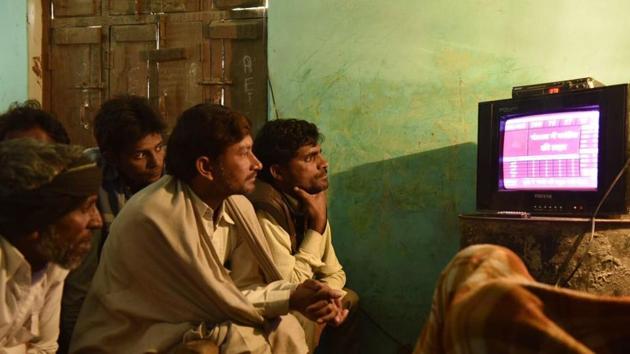Assembly elections 2017: Fragmented Muslim vote in Muzaffarnagar helped BJP
Muslims in Muzaffarnagar which was badly affected by riots in 2013 was expected to vote for the Samajwadi Party. But the Muslim vote in and around Muzaffarnagar fragmented and left the SP clutching at straws.
After offering his Friday prayers in a local mosque in Muzaffarnagar’s Budhana area, 28-year-old Mohammad Naushad sounded upbeat about the election results expected the next day. “Myself and every Muslim I know, have been praying for Akhilesh Yadav’s victory. This time we voted with passion. We voted to redeem respect,” said Naushad who lost his house in the communal riots of 2013.

Naushad and almost everyone in Nayi Basti, a colony of around 70 families of riot-affected Muslims in Budhana, said that they voted for the Samajwadi Party (SP).
Reasons: It gave them compensation; development work done by SP; the BSP remained silent on riots; RLD is considered a party of Jats who caused maximum damage to Muslims during riots.
“We are waiting for this election result like we do for Eid ka Chaand (new moon which marks the festival of Eid),” said Naushad’s father Mohammad Yunus.
SP’s victory, Yunus said, would mean that people have taught a lesson to BJP and BJP’ win would mean that Muslims would have to live in fear.
After 24 hours, as results started pouring in, the mood was sombre in Nayi Basti. Groups of men watching TV were stunned, silent and grappling to put the result into perspective. By 3 pm, they had stopped watching TV and went back to their daily chores.
In Muzaffarnagar and adjoining Shamli - two worst riot affected districts - the SP could win only one out of nine seats.
“Hindu nilaambit ho gaye (Hindus got consolidated). And Muslims got divided. There is no other way to read this result,” said Naushad.
The result of UP assembly election 2017 offers new patterns on Muslim electorate in the state.
It is evident that the Muslim vote is not a monolith. Take Rohilkhand region, for example, where assembly seats have 30-60% of Muslim population. While the SP continues to enjoy the support of the community, the BSP, along with RLD and AIMIM were fighting to wean away the Muslim vote from the SP’s fold. It resulted in reverse polarisation of Hindu vote in this region and BJP became the unintended beneficiary, winning Muslim dominated seats of Badaun, Shahjahanpur, Pilibhit and Moradabad Nagar.
“Musalmano ko bhi sabaq sikhna chahiye. Kabhi ek jut nahi hote. (This is a lesson for Muslims. They are never united),” grumbled Ishtiaq Khan, watching election result on TV in Budhana.
The result also challenges the theory that Muslims vote only to defeat the BJP. Not all Muslims across UP form a block go stop the BJP. Where they do, their calculation is not always right. Plus, like any other community, Muslims could also vote for a strong candidate or the one whom the village Panchayat wanted them to back or to oust the candidate who did not perform up to the mark.
Thirdly, the result proves that a party can win UP without reaching out to Muslims. It appears that the BJP’ s rainbow coalition of upper castes, non-Yadav OBCs and some Dalit communities yielded result. So did its decision of not giving even a single ticket to a candidate from the Muslim community, a smart ploy to consolidate the Hindu vote. Add to that the vitriolic comments by Yogi Aditya Nath, numerous mentions of triple talaq, PM talking about power supply given to graveyards. And the polarisation is complete.
Lastly, the Yadav family feud did have a negative impact on the ruling party in UP. Many Muslim SP supporters in the party’s bastions in central UP told this reporter that they would vote for SP despite the infighting. But the refrain changed in Muzaffarnagar where Muslims did not rule out BSP because of the dynamics within SP.
“Jhagda le dooba inko. Ham toh keh hi rahe they (The infighting sank them. I predicted as much),” said Iqbal Khan, former pradhan of Jogiya Kheda village in Budhana.





